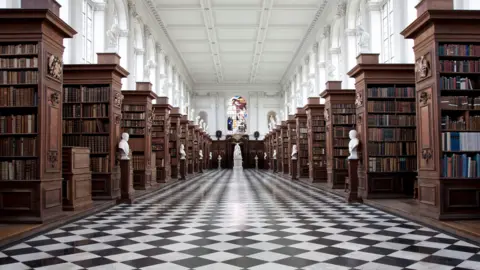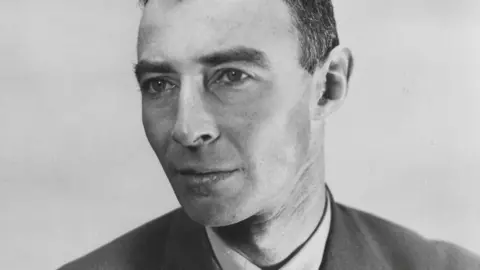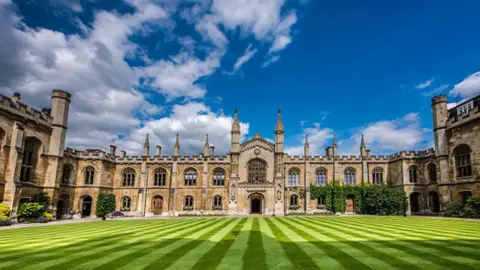Oppenheimer bomb test notes on display at Cambridge open heritage events
 Trinity College
Trinity CollegeBriefing notes compiled by J Robert Oppenheimer while developing the atomic bomb are among papers going on display during a university city's open event.
Open Cambridge is part of the Heritage Open Days scheme and lasts 10 days.
Oppenheimer's notes and an eyewitness account of the 1945 detonation of the Trinity test bomb can be seen at Trinity College's Wren Library.
Open Cambridge coordinator Zoe Smith said there are "truly fascinating events on offer this year".
 US National Archives
US National ArchivesThe aim of the free event is to allow people the chance to see places they would usually be unable to access and to try out new experiences.
Grade I-listed Wren Library is where Isaac Newton's first edition copy of Philosophiae Naturalis Principia Mathematica and AA Milne's manuscript of Winnie-the-Pooh are kept.
It will display typed briefing notes by Oppenheimer and his chief aide, John Henry Manly, from June 1942 outlining the necessary "fast neutron projects" which needed to be completed as part of the atomic programme.
 Corpus Christi College, Cambridge
Corpus Christi College, CambridgeThe eyewitness account of the 1945 Trinity test bomb was by Otto Frisch, who joined the Manhattan Project in 1943 as head of the critical assembly group at Los Alamos.
He later became professor of physics at Cambridge, was elected a fellow of Trinity College and left the college his papers.
Another Trinity fellow, lifelong pacifist and future CND president Bertrand Russell, gave a radio broadcast highlighting the consequences of nuclear detonations.
His 1955 script will also be on display.
 Wolfson College
Wolfson CollegeOther highlights include Gurpran Rau's Patterns of Renewal exhibition at Wolfson College, paintings inspired by her walks in Cambridgeshire's woods during the pandemic lockdowns.
"For me, the forest floor is like a tapestry: highly patterned, alive, chaotic, mysterious, and beautiful all at the same time," she said.
Events start on Friday 8 September.

Follow East of England news on Facebook, Instagram and Twitter. Got a story? Email [email protected] or WhatsApp us on 0800 169 1830
